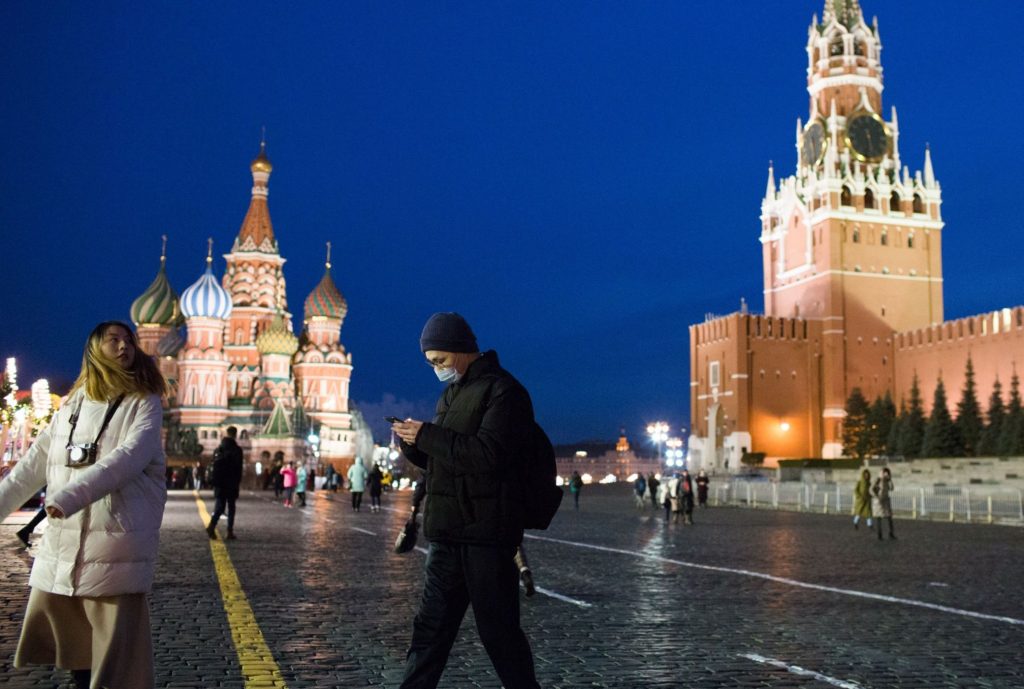The Kremlin is legally and technically ready to separate the country from the global internet. At the legislative level, a decision has already been made. It was speeded up by recent social protests and Alexei Navalny’s movie about Putin’s palace.
The readiness to disrupt the network was announced in the Russian media on Monday, February 1, by Dmitry Medvedev, the former president and current deputy head of the Russian Security Council. Although, according to Medvedev, the separation will be “not easy” and “really, I will not love it”, Technologically, everything is ready to be turned off. And “at the legislative level, all decisions have been taken.”
Also read: Russia will block YouTube, Twitter and Facebook. Surprising reason
Medvedev added that the basic rights to govern the internet are of course in the United States, but the web is linked to governing the entire country, and it acquires a large number of social functions.
He added that, as in the case of the SWIFT system for international payment transfers, which the Bank of Russia has developed an alternative system for financial messages, the Kremlin cannot leave the internet unchecked. Parliament passed a law allowing the government to independently run the network in the country.
The former president assured that until now, all social networks still operate in Russia. He immediately warned that if they “act unfriendly, if they do not want to spread Russian information, and if they take a clear hostile stance toward the country,” the state has the power to influence it.
Also read: Russia bans the sale of mobile devices without Russian software
“There are many decisions that can be taken at any time, including decisions such as slowing down network traffic or suspending operations,” Medvedev told Interfax, adding that suspending access is a very harsh and drastic measure.
On November 1, 2019, the law “Sovereign Runes” (Russian Internet Editor) came into effect in Russia. WithOperators are required to install technical countermeasures on networks that will filter traffic and restrict access to restricted websites
On December 30, 2020, Vladimir Putin signed a law giving Roskomnadzor the right to block or slow down foreign internet resources that Russian officials say are censored by Russian state media.
The document presents the status of the owner of the information resource who is involved in the violation of human rights and fundamental freedoms and the rights and freedoms of citizens of the Russian Federation. Its potential targets are US global social networks such as YouTube, Facebook, and Twitter. It was listed in the explanatory memorandum as violating freedom of expression.
Let us remind you that at the end of 2020, the Russian Parliament passed a law enabling Twitter, Facebook and YouTube to be banned in Russia. They were supposed to discriminate against Russian state media, such as Russia Today (the Kremlin propaganda tube in English red), RIA Nowosti, and Krym 24 (Crimea 24 – also a propaganda channel created after the occupation of the Crimea – ed). On YouTube, the channel “Soloviev LIVE” run by the well-known state promoter Vladimir Soloviev is no longer recommended for the Russian audience.
Also read: Russia is testing its Internet. He is also planning his native Wikipedia
Under the new law, the first steps can be taken six months after the law comes into effect, that is, the middle of 2021. By August 1, Russian President Vladimir Putin instructed the government and his administration to prepare a list of requirements for foreign companies operating on the Russian Internet. In particular, they will be required to open representative offices in Russia.
While crafting the concept of secession, the Kremlin is hastily developing an alternative for YouTube and the TikTok social network. The project is operated by Gazprom Media Holding. – The first results will appear in 2021-22 – said the head of the acquisition, Alexander Sharu.







